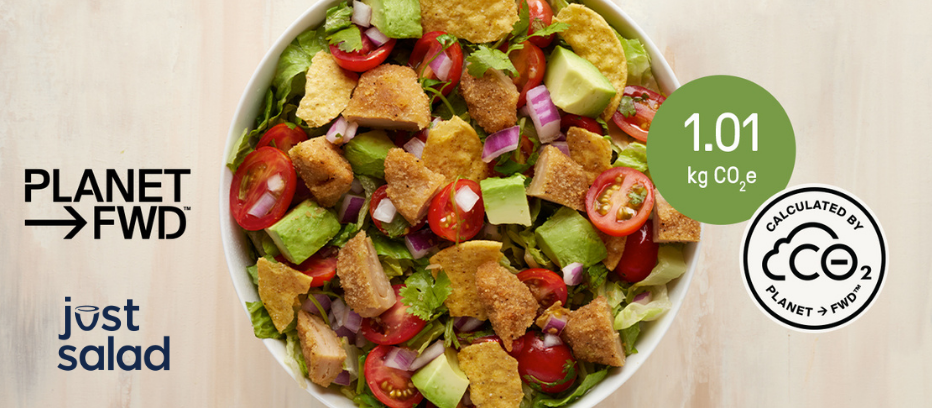Planet FWD, a carbon-assessment startup founded by Zume Pizza co-founder Julia Collins, grabbed another cash infusion in the way of 10 million Series A dollars to continue developing technology so that the $1.5 trillion consumer products industry can more accurately measure and reduce their carbon footprint.
We profiled Collins’ journey from pizza to climate-friendly food beginning in March 2020 when she announced a $2.7 million seed round, led by BBG Ventures, for Planet FWD to look at regenerative agriculture. The company went on to launch its Moonshot Snacks brand later in that year.
It was while Planet FWD was creating its cracker product that Collins says she learned just how difficult it was to develop a product that is carbon neutral.
“We want to expand our carbon footprint at the product level for a box of crackers, and that was really hard,” she added. “We wanted to understand our corporate level footprint as a company and that was really hard. We wanted to understand how to reduce our emissions, and that was really hard. We wanted to understand how to purchase very high-quality, carbon offsets, to get to carbon neutral, and again, it’s really hard.”
What emerged from those learnings was a carbon-management technology platform for consumer brands to create a climate-friendly company and products more easily by being able to measure, reduce and neutralize emissions and report its carbon footprint.
For example, if your company wanted to launch a line of granola bars that is as low in emissions as possible, you can use Planet FWD’s emissions-reduction engine during the product-development phase to understand how to change your supplier or your packaging supplier to a more efficient method.
“Imagine the next generation of products that can be produced with low emissions because we’ve made it really easy for customers to understand not just details on how to calculate calories, fat and protein, but actually how to calculate carbon and carbon equivalent during product development,” Collins added.
The company’s technology provides GHG Protocol Scope 3 emissions modeling capabilities to help brands address the emissions along their supply chain. Scope 3 emissions account for up to 89% of emissions for consumer products on average, Collins added.
Time is of the essence in reducing emissions, with Collin noting that there are less than 100 months left to reach the 2030 global goal of cutting at least 40% of greenhouse gas emissions from 1990 levels. Household consumption of things like food, which impacts land, energy and water, account for 60% of global emissions, she added.

JustSalad’s carbon label create from Planet FWD. Image Credits: Planet FWD
“The emerging regulatory landscape is causing an acceleration of companies really needing better solutions for carbon management and that regulatory framework or those regulatory frameworks are being bolstered by the emerging consumer appetite, sustainable and climate friendly products,” she said. “Retailers paying more attention are prioritizing brands that are motivated, sustainable and willing to stand behind it. And then of course, new ESG is becoming an important part of the way that companies are able to access financial instruments.”
As a result, the past year has been one of growth. Though Collins declined to go into detail about growth metrics, she did say the company is now working with 25 customers, including Kashi, Pangaia, Just Salad, Numi Organic Tea, Healthy Hippo, Toodaloo and Sweet Loren’s.
Planet FWD, aided by an acquisition of climate tech startup CleanMetrics in 2021, also amassed what Collins touts as the “largest Life Cycle Analysis database for agricultural production systems in North America.” It also hired a climate science team to continue to expand that data.
Meanwhile, the Series A is co-led by Acre Venture Partners and Congruent Ventures and includes participation from existing investors BBG Ventures, Precursor, Concrete Rose, January Ventures, Elemental Excelerator, Cleo Capital and Rethink Food. To date, Planet FWD has raised $16.8 million.
The new funding will be deployed into the company’s ongoing development of its data, including building out its climate science team. It will also go into product development, like more predictive emissions reduction, and supporting existing and new customers.
“Supply chains are so complex, and frankly very difficult to manage, and that is why Planet FWD is very much a vertically-oriented solution,” Collin said. “We are obsessed with helping to decarbonize the consumer landscape and focused on continuing to heat up and fine tune our emissions reductions engine.”















 English (US) ·
English (US) ·